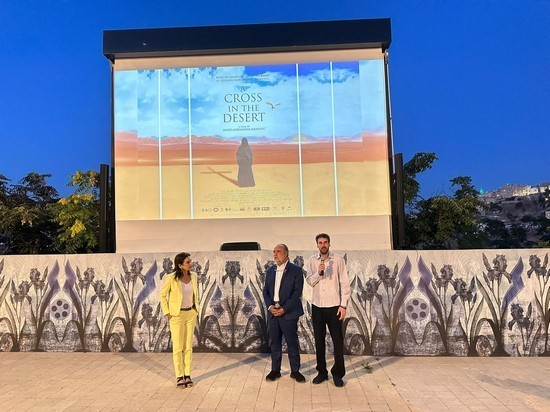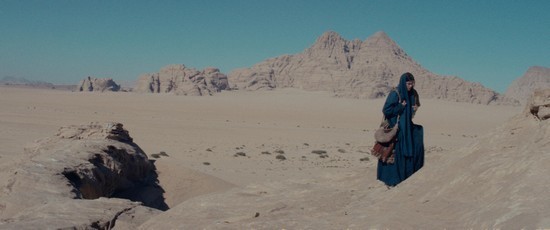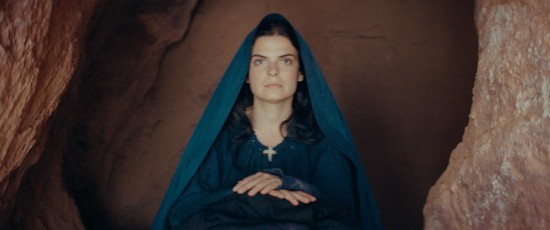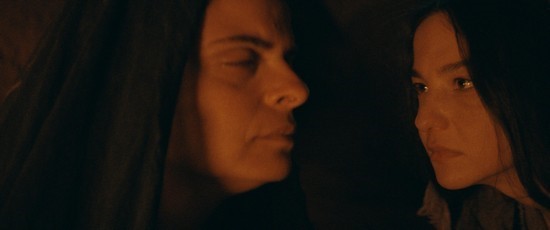AMMAN — Serbian filmmaker Hadzi-Aleksandar Djurovic’s newest film, “A Cross in the Desert”, recently screened at The Royal Film Comission’s Outdoor Ampitheater. The film, the majority of which was shot in Wadi Rum, tells the story of the Christian Saint Paraskeva and her journey across the desert during the 10th century after leaving Constantinople on a pilgrimage to Jerusalem.
اضافة اعلان
Holding a striking visual style, the film is accompanied by atmospheric and evocative sequences involving hallucinations and manifestations of the character’s past sins and temptations.
After the screening, Jordan News interviewed the filmmaker. Here is what he had to say.
The following answers are edited for clarity and conciseness.

Q: This is a very haunting film, as with most other films about faith and religion. How do you feel it can build empathy among those with different or opposing beliefs?
A: It all depends on the single person. Faith and religion are two different things. Everybody who has faith will understand this film, not depending on religion. We had great feedback after our Belgrade premiere from people who are atheists, from people who practice Hinduism or other beliefs — religions that are not close to Islam or Christianity — and they felt the same energy or emotions that was intended from the film. That was, for me, the biggest achievement of the film.
According to Djurovic, the film was shot over a period of 16 days, both in Wadi Rum and a few scenes shot in Serbia. He said that the Western perception of Wadi Rum — “a vast, harsh desert”— was one of the factors that drove him to shoot the film on location. He described the setting as an anchor for Paraskeva, referred to as Petka throughout the film, and her development over the course of her 40 years living in a cave with the help of Zainab, a Bedouin girl living along a nearby river with her husband and son.

(Photos: Handouts from RFC)
Q: What would you say is the significance of the film being shot on location here in Jordan and Wadi Rum? What purpose do you think it serves to the film itself as a work of art?
A: For people from here, it is not so unusual because they are used to the place. But itis interesting how others see the desert and I really think for our audience on the European side, that the film’s landscapes are a character. They help our main character to build her story. We feel her struggles when we see how big that desert is and how harsh it is. In a way, it’s really important. Maybe 40 percent of the film’s impression is that image and that location.
Based on his mother Ljiljana Habjanovic Djurovic’s best-selling novel “Petkana”, the film was supported and produced in part by RFC itself. Prior to the screening, Djurovic and the film’s producer Khaled Haddad thanked the crew members in the audience as well as the film’s production team for their efforts in bringing their shared vision to life.

Q: What was your experience like working with the Royal Film Commission?
A: While filming, we had a mixed group of Muslims and Christians, and they were all really connected to the story. They gave the 100 percent of their talent to it and I think it can be really seen on screen.

Q: This is the film’s first screening here in Jordan. How do you feel about the response from the Jordanian audience?
A: I’m glad that a lot of people came tonight that are interested in the topic. I really think that regular audiences can learn something new from a cultural aspect — a religious aspect. I really think that they will understand the same emotions. It can be tagged as a spiritual film, but it can also be really universal and understood all over the world because we share the same emotions and struggles. The film is about the inner struggle within every person.
Read more Around Jordan
Jordan News



